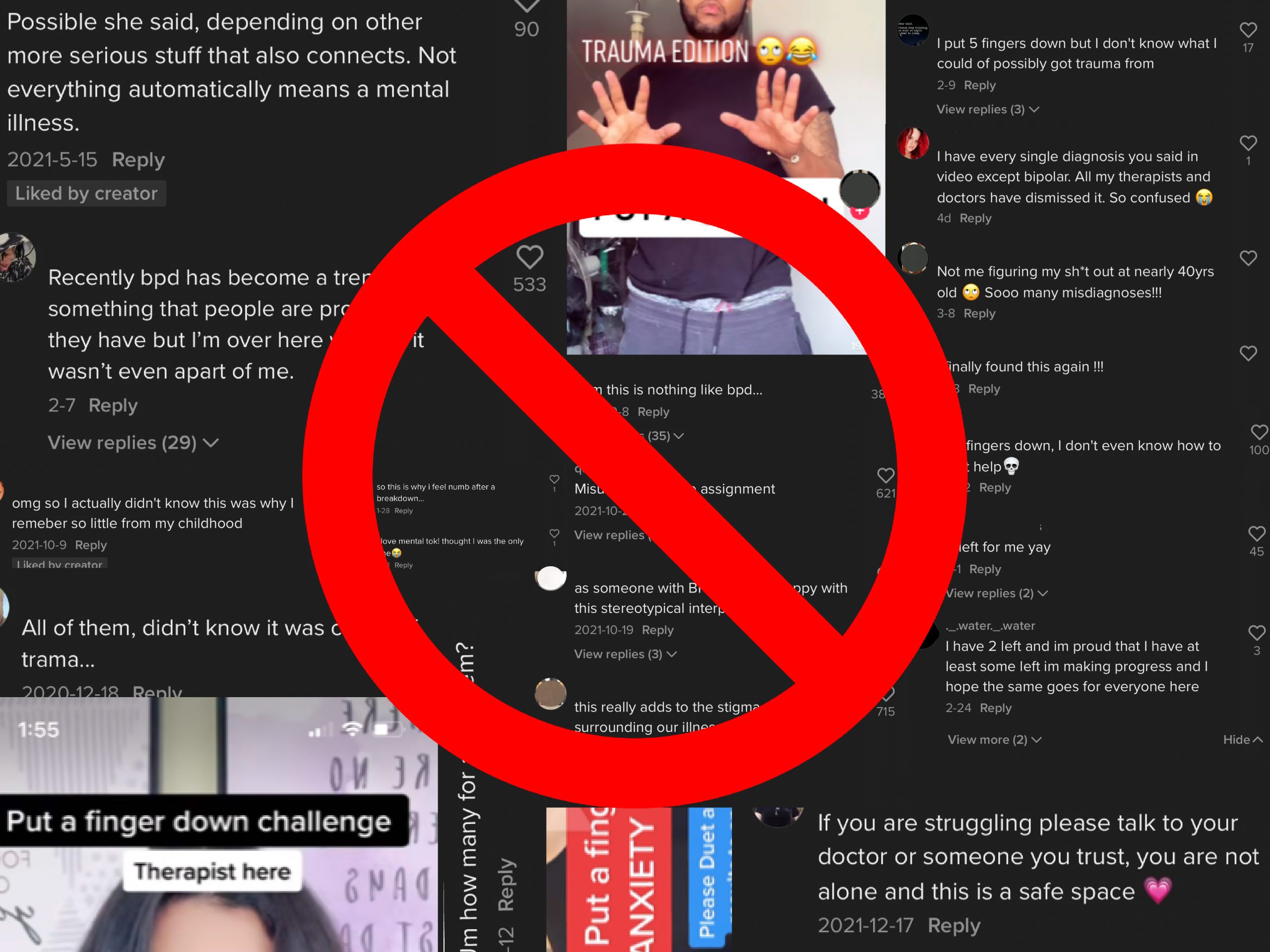People are beginning to casually talk about the “trauma” in their lives on social media in a way they shouldn’t.
#TraumaTok, a TikTok hashtag with over 615 million views, allows creators to recount traumatic experiences in their lives to their followers using something called “casual therapy speak.” Creators on TikTok post content that allows their followers to interact with the video, such as “finger-down” challenges. In these challenges, the creators will list a number of normal behaviors and label them as trauma responses.
“The trend of trauma-ifying common behaviors is so pervasive that there are now viral jokes about it,” said writer Shannon Palus in an article.
This trend of trauma talk is becoming less serious the more it’s talked and joked about, and people don’t realize how big of a deal this is. Trauma is a serious matter that comes from seriously harmful and scary experiences. There’s a problem when people start relating having messy rooms and being an introvert to having post-traumatic stress disorder.
Most of the terms used are not used correctly, so they are misinforming viewers. People will use trauma talk and casual therapy speak without any knowledge of what they actually mean and it’s putting wrong ideas into people’s heads.
Phoebe Bowers, a writer for Cardiff Student Media, wrote in an article, “Misinformation on trauma is so easily widespread, which leads to other people misdiagnosing themselves.”
It’s gotten to the point where minor mishaps or something embarrassing happens, and people will label that as trauma. Seeing these words thrown around because of something that was only an inconvenience to that person will invalidate those who have experienced something traumatic.
We have all experienced something disturbing or upsetting, but labeling something as “trauma” that was only upsetting to you is overused and is losing its meaning.
Elyssa Barbash, a writer for Tampa Therapy, wrote in an article, “Trauma is a word that is reserved for experiences that are, in fact, distressing or disturbing, however there is also the necessary component that the amount of stress experienced exceeds the person’s ability to cope, as well as the experience being a threat to the person’s life, bodily integrity or ego integrity.”
Using casual therapy speak and trauma talk makes it harder for those suffering from real trauma. Suffering from a traumatic experience and listening to people online speak about it casually is invalidating.
Pop culture has picked up this speech in movies, books, magazines and TV shows. It has spread from social media to the entertainment world around us. It needs to stop before it becomes too much. If trauma talk becomes even more casual than it already is, it will not help anyone, it will only make things worse.
Trauma talk online, especially in ways like #TraumaTalk on TikTok, is not the way to handle something traumatic or seemingly upsetting to you. If you are worried about having trauma or dealing with a trauma response, seek professional help. Don’t solely listen to the people on TikTok and other social media sites. Find someone that can professionally help you with any traumatic experience or trauma responses you may have.


